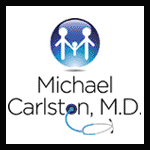
As conventional medicine has very, very slowly begun to acknowledge the worth of “other” approaches to helping patients, the term “integrative medicine” has arisen. This term is intended to mean incorporating a variety of approaches towards the goal of creating the best possible outcomes for each patient. It implies that maybe, just maybe, there is something better about some other approach. For example, using meditation or exercise or biofeedback instead of taking a prescription tranquilizer. That concept motivating use of the word integrative is great, but there are a couple of problems.
The first is that the term, “integrative”, ducks the reality that sometimes patients (and wise physicians) intentionally avoid conventional medicine. They don’t combine, they exclude. They don’t just like the other choice, they actively dislike the conventional option. One rationale for choosing something else is that conventional medicine is more likely to be harmful than those other approaches. So, who willingly chooses the less effective and more harmful option?
The second problem, is more subtle and insidious. Even the conventional practitioners who have a favorable view of these other therapies nearly always believe these therapies are unsuitable for serious problems. They treat them as if the therapies are more “cute” than effective. The term most often applied then, is “wellness”. In other words, these treatments might help healthy people feel better, but nothing more. If a person has a real disease, they need real prescription medicine.
From 35 years of experience, I can assure you that that belief is completely wrong. In fact, I know that these other approaches, especially the health habits, are absolutely better, more powerful and more effective than prescription medicines. That perception is the inspiration for the title of my book, Better Than Medicines. It is entirely impossible to be healthy without making these habits a part of your life. I have helped many patients with serious illness get better, largely by addressing these simple habits
Medical doctors are unfortunately obsessed with prescribing drugs. This is wrong because, as I have already stated, drugs are just are not as effective as health habits. They are dramatic, but weak. They are useful in the short term, but the longer a person takes them the more troublesome the drugs’ limitations become. Why should anyone choose a second rate therapy that costs a lot of money? In my view, physicians have shirked our responsibilities, first to learn about these simpler and more powerful methods, and second to help patients implement these habits. Some physicians, as evidenced by some of the comments on my book, recognize the vital importance of good health habits.
I applaud your wisdom in seeking out other opinions on your own health care. You health is too important to trust others to make decisions for you.
